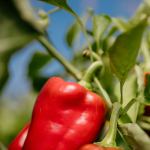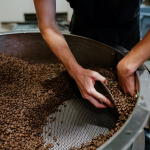Record Keeping: The Secret to Farm Business Success?
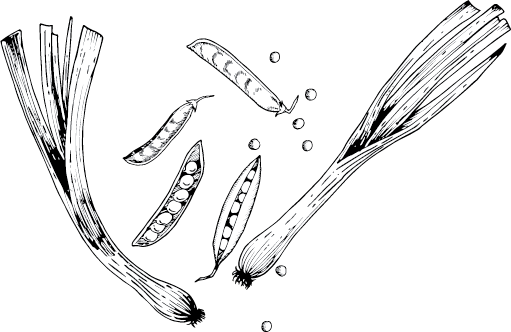
Andrew Adams
As I sit here in my slightly chilly office typing away on the computer, analyzing data from the past year and comparing other years of similar climatic conditions, all I can think is, “How would I be able to make the important business decisions I make each year without the data and evidence to support my hypothesis?”
Aside from the importance of having impeccable records for our organic inspection (Hey, you have to pay your inspector so it’s best to have good records!), the benefits of keeping good records far outweighs the challenges of staying on top of them, especially during the peak of the season in late July early August when the days are as long as are the list of chores.
Organic certification is not just a marketing tool (though some may use it as such). Think of it as a best practices guideline. By adhering to organic record keeping requirements you can make decisions to be proactive instead of reactive in situations that may arise on your operation, whether you’re hit with a pest outbreak or working out nutrient management for a new crop.
This year was a heck of a rainy year across good portions of British Columbia. Thanks to our record keeping, we have data from wet years and years of incredible drought. When the weather man says get your slickers out for the season, we know which crops will thrive in which fields, who can handle wet feet and who can’t—and we plant crops accordingly. Because we know which varieties do best in the varying conditions on our farm, the records lead us through the storm. This ability comes only with time, observational skills and record keeping. Data not only allows us to be more profitable, but also to tread lightly on the land that provides us with so much, which in the end is the most important factor.
In the early years of our farm, I kept a journal with tons of notes of damn near everyday throughout the season. I want to preface this with We’ve been on our property since October of 2011, certified since 2013, and farming full-time for nearly five years. It was a long road to get where we are now and we are still evolving and adapting as all farms should if they are too become or stay viable businesses. In the beginning, our notes were small, choppy details about what was going on, from weather to purchases, etc. I believe this is common for most farmers getting started, and even some seasoned vets.
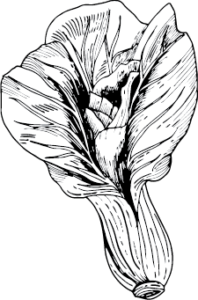
Seeing my methods from an outside perspective, my beautiful wife (and my biggest cheerleader) suggested I check out the e-book Record Keeping for Organic Growers by Canadian Organic Growers (COG)—upon investigating, I found that COG provides free spreadsheets for record keeping. With a little editing, I was able to customize the spreadsheets to my liking and needs. My scattered notes and receipts now became organized, my thoughts and actions became more linear. In the words of Ben Hartman, “I straightened my spaghetti noodle,” thus reducing wasted time.
Taking a lean approach to making record keeping efficient and easy is essential, or you can end up spending more time going over data than you spend pulling weeds from the carrot patch. Reluctantly, I took a stab at looking at how much time I spend writing data down (we used to do in on paper spreadsheets) in our pack station during any “field operation” then in the fall transfering it to an excel spreadsheet. It was several days of simply punching keys—which is not the most glorious part of farming. I also still carried my notebook everywhere just in case. After balancing the time I was spending with paying myself a modest wage for that time, it made sense for me to purchase a tablet, incorporate all the spreadsheets on the tablet, and have it saved in real time to the cloud. We also bought a big fancy WiFi router to get internet across most of the farm so that everyone on the farm could enter data directly.
If something is difficult or abrasive, we don’t like to do it. Data collection and records need to be made easy if they are going to happen. Like recycling, if it’s a difficult chore, it won’t get done. The investment paid for itself that first season in the number of hours I saved transcribing data. With these extra hours, I can place myself in more valuable tasks on the farm—or simply have more family time.
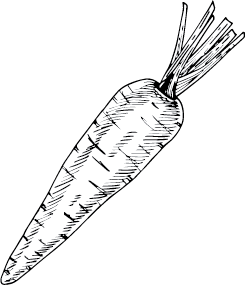
Another great time saver has been Square, the software that we use to take debit, credit and generally do market sales. In the past we would hand tally all products sold at the market and we didn’t have the ability to take credit or debit. After seeing how many customers wanted to pay with plastic, and the lost sales due to our inability to accept, we started using Square on our tablet. Not only can we now take plastic payments but Square sets up a cash register and tracks all product sales and what times they sell. Square also allows us to make and send invoice to restaurants that they can pay online, and even reminds them when they are late on payment. All of these sales records are important so that organic inspectors have traceability of all your products, and Square does it for you easy peasy.
If you want to get even more efficient, and spend less time on tracking input purchases, Quickbooks can be synced to your credit or debit card. After you categorize certain purchases, the algorithm will start placing your purchases in categories automatically and can spit out a report at any time. This helps with tax time come end of the season, and tracks your crops profitability in real time. I’ve yet to use Quickbooks but I will be moving in that direction—every time I save myself the hassle of doing paperwork I can then spend it with my family or doing more valuable tasks on the farm.
I know some records don’t really change from year to year but…they might, and your inspector needs to ensure you are being diligent. So, wherever you can, save time, and when you can’t, ensure it is time you have allocated as part of your business expense. Keeping diligent records is not something only organic farm businesses have to do, it’s what all business must do to be successful. Without good record keeping you are just guessing when it comes to business decisions. Guessing is what weather forecasters do, not successful businesses. Farming is difficult enough of a profession, so give yourself an edge, invest in easy ways to keep records, and make good decisions based on sound logic and not emotion.
Andrew Adams farms at Hope Farm Organics with his wife Janie. Andrew has a BSc in Agriculture from Kansas State University and Janie has a BEd. After seeing the state of food security and agriculture in the north the two felt obligated to make real change in the form of organic food production and thus created Hope Farm in 2011.



